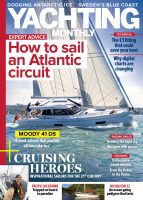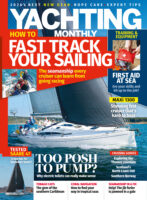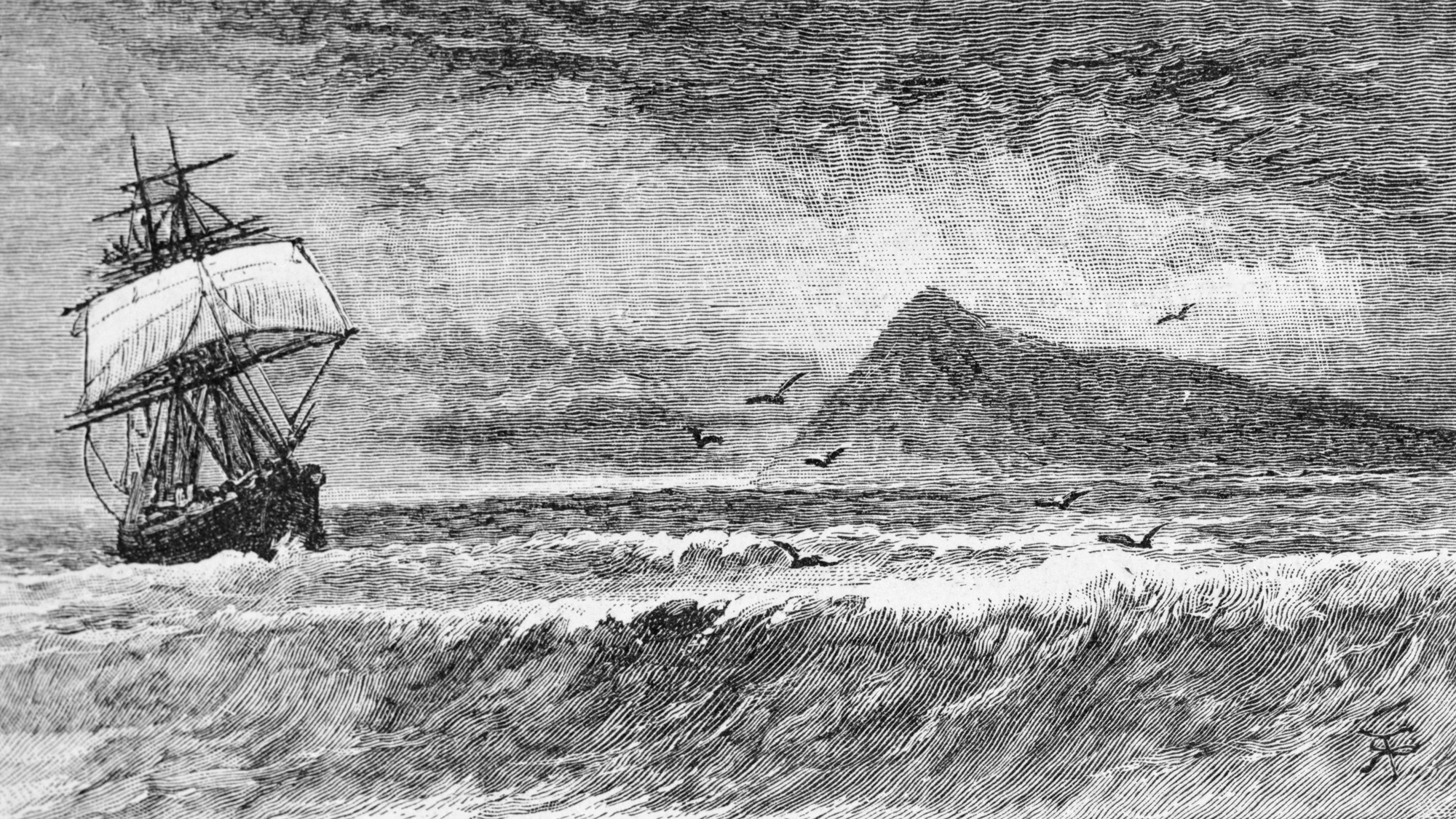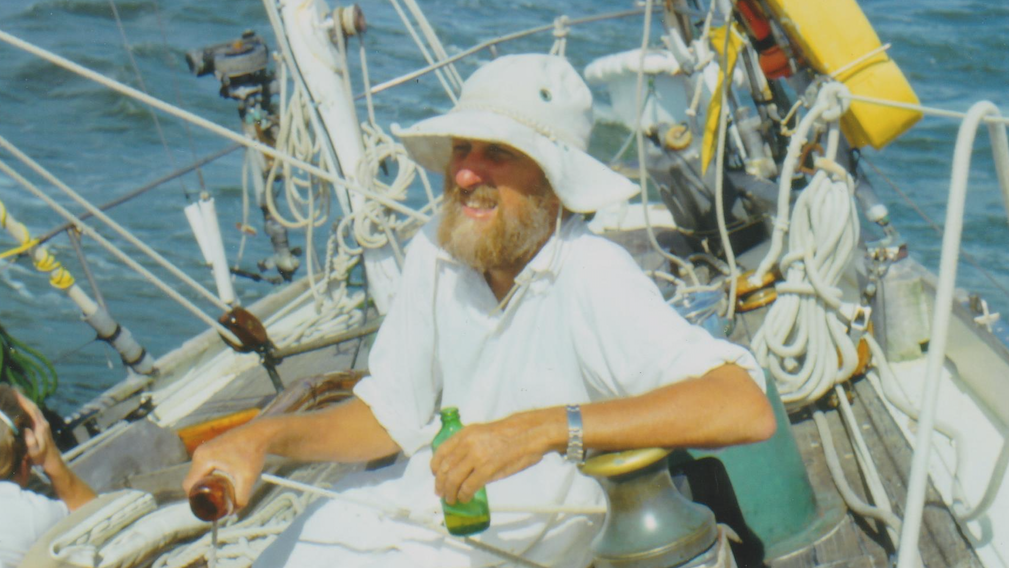Dick Durham considers the history of the British as a maritime nation and looks at the evidence around him, which implies it no longer is one
Many years ago, I was on a family motoring holiday driving towards Brittany when, in a small town, we passed under a banner proclaiming a regatta. I was baffled: we were still 40 kilometres from the coast. Such hinterland support for sailing was new to me: back home a candy-floss stick’s length from the coast, folks knew nothing and cared less about the maritime world.
On more than one occasion I’ve been asked by day-trippers, whether the dark lump of Kent on the other side of the Thames Estuary is France. I once even overheard a young mum say: ‘Look, you can see Calais,’ as she pointed to Sheerness nine miles away.
I recently mentioned this to six-times solo circumnavigator Jean-Luc Van Den Heede who was publicising his autobiography (The Last Sea Dog, Fernhurst Books, 2024). The 74-year-old winner of the 2019 Golden Globe Race told me he believes his countrymen’s love of the sea comes from the accounts of great sailors such as Alain Gerbault, Bernard Moitessier, Eric Tabarly and Isabelle Autissier to name but four.
‘They provide a dream,’ he said, ‘for most people the thought of a human being sailing alone across an ocean is compelling. They fear they can never do that.’

Sir Robin Knox-Johnston aboard Suhaili at the 50th anniversary Golden Globe Race celebrations in waters near Falmouth, June 14, 2018. Credit: Getty Images
OK, fair enough, but we have our own heroes, too: Chichester, Knox-Johnston, Blyth, Ellen MacArthur, to also name but four. And yet sailing does not appear to be in the DNA of the British. If anyone understands – and wants to manipulate – the zeitgeist of the common man it’s a politician.
Therefore, you won’t find sailors being lionised with a visit to No. 10 Downing Street, unlike in France where, in 1990, the wily, old President Francois Mitterrand welcomed the 13 competitors of the first Vendée Globe Race, at the Elysée Palace.
‘What really impressed me was his knowledge of each sailor,’ Jean-Luc, who came third in the race, said. ‘He knew them by name, where they lived.’ Jean-Luc now acts as an adviser to those who have conquered that fear and wish to race offshore.
The man who has rounded Cape Horn 12 times, said: ‘The original Golden Globe Race created a spirit of adventure and one not associated with money. You can buy a boat cheap and work on her yourself. This is a dream everyone can have.’
Article continues below…
In search of the famed ship Beagle, which carried Charles Darwin to his discoveries
For several years I kept my Contessa 32, Minstrel Boy, at Paglesham on the River Roach in Essex and was…
‘Everyone will miss Don, but few will miss his copy’ – Remembering a sailing writing legend
There’s a scene in the film, Butch Cassidy and the Sundance Kid, where outlaws Paul Newman and Robert Redford watch…
In his book Jean-Luc reveals how he removed the teak deck on his own Golden Globe entry, a Rustler 36, to save weight, although he drew the line at cutting off toothbrush handles as some fanatics in the Vendée did and also filling his galley with dog food to save money as Moitessier did for the original Golden Globe Race.
Jean-Luc’s philosophy is that you must be a technocrat – and not a poet – to sail solo around the world: ‘Problems will always arise and if you don’t know how to fix them, you cannot finish. You need to be able to tackle them one by one, methodically assess their seriousness and try to solve them. This provides a sequence of possibilities, luck adding to luck, a real inspiration. I believe in that. If you are just a poet then it’s best you stick to armchair sailing.’
In the original Golden Globe Race, two competitors, each a technocrat and a poet, one a Frenchman, the other English, suffered impostor syndrome.
Frenchman Bernard Moitessier, a spiritual soul who could fix stuff, could have won but decided that was a phoney triumph and sailed on instead. Donald Crowhurst could fix stuff, too, but with a boat that was beyond repair, he started to cheat, and when it became apparent he could win fraudulently, retreated into philosophy, poetry, and finally insanity before throwing himself overboard.
Ever since interviewing his son Simon, I’ve always felt desperately sorry for Crowhurst, but if there’s one man who should have made that voyage from his armchair it is he.
Enjoyed reading this?
A subscription to Yachting Monthly magazine costs around 40% less than the cover price, so you can save money compared to buying single issues.
Print and digital editions are available through Magazines Direct – where you can also find the latest deals.
YM is packed with information to help you get the most from your time on the water.
-
-
- Take your seamanship to the next level with tips, advice and skills from our experts
- Impartial in-depth reviews of the latest yachts and equipment
- Cruising guides to help you reach those dream destinations
-
Follow us on Facebook, Twitter and Instagram.






